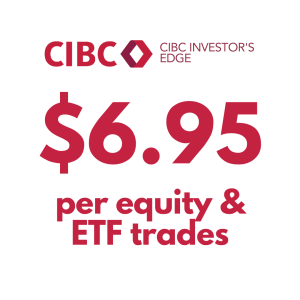
ETFs vs mutual funds? These are the two most popular options in the investment world. But investors can get overwhelmed when choosing which should go in their portfolio. To help new and seasoned investors, we will look at some differences between the two investment choices. Then, we will consider some advantages and disadvantages of each. By following this guide, you can make a choice that matches your investment goals and budget. Keep reading to learn more!

Table of contents
What is a mutual fund vs ETF?
To answer the question of ETFs vs mutual funds, let us consider an overview of each, one after the other. Let’s start with mutual funds. This type of investment vehicle pools money from different investors. The money is then invested into a diverse portfolio. This portfolio may contain stocks, bonds, and other securities. Each investor has shares representing a percentage of the mutual fund’s holdings.
An ETF is short for Exchange-Traded Fund. It is an investment fund typically traded on the stock exchange market, just like regular stocks. Here, an investor owns a portfolio of assets traded on the stock exchange. These can be bonds, stocks, or a combination of securities, normally within a specific sector or industry, such as healthcare or tech.
CIBC Investor’s Line Offer
Up to $6.95 per online stock or ETF trade. Plus, there’s no minimum account balance.
What is the biggest difference between ETFs and mutual funds?
The main differentiating factor between an ETF and a mutual fund is how they are traded in the market. As we said earlier, ETFs operate like regular stocks. This means they are traded on the stock exchange market. As such, investors can buy or sell ETF shares in real-time and at market prices throughout the trading day. Plus, the prices of these ETFs may fluctuate depending on the market supply and demand.
The story takes a different turn for mutual funds. This investment package is not traded on the stock exchange market. Instead, investors buy them directly from a fund company or its authorized agent. Unlike an ETF, you can only buy mutual funds when the market closes at the end of every trading day. The purchase or sales price of the fund is then determined by the Net Asset Value (NAV).
Apart from this, there are some other key differences between ETFs vs mutual funds. These include:
- ETFs offer investors much-needed trading flexibility. This allows them to execute trades anytime during market hours. Mutual funds do not have this real-time execution advantage.
- Unlike mutual funds, ETFs have lower expense ratios. We can credit this to their passive management style. This passive management helps ETFs incur low administrative costs and investment fees.
Advantages and Disadvantages of Mutual Funds vs ETFs
Here are some key advantages and disadvantages of mutual funds and ETFs:
Mutual Funds
Advantages
- Professional portfolio management.
- It is perfect for investors that want to avoid any involvement in the investment process.
- The ability to automatically re-invest dividends is another advantage of mutual funds.
- Reduced portfolio risk due to diversification. This is because mutual funds contain a wide range of securities.
- Understanding and buying mutual funds is easier as they have low minimum investments.
Disadvantages
- Mutual funds are typically subject to higher expense ratios, unlike ETFs.
- There is limited trading flexibility, as you can only buy or sell once a day.
- Mutual funds can sometimes have very high expense ratios and fees.
- There is also the risk of abuse of authority by the fund manager. This may be through unnecessary trading or excessive replacements.
- Higher chances of capital gains taxes. This is due to the fund management trading the underlying assets.
CIBC Investor’s Line Offer
Up to $6.95 per online stock or ETF trade. Plus, there’s no minimum account balance.
ETFs
Advantages
- Lower operating costs as ETF management does not need to send regular statements and reports to shareholders. But mutual fund managers are expected to make these routine reports, resulting in higher costs.
- Unlike mutual funds, you can trade ETFs multiple times a day, provided the market is open.
- This trading flexibility we highlighted above allows investors to make quick investment decisions. These on-the-spot decisions can be a timely lifesaver for your portfolio.
- Exposure to a diverse portfolio. ETFs are typically traded in almost all asset classes and currencies.
- Fewer capital gains tax when compared to mutual funds.
Disadvantages
- Intraday pricing changes may not benefit all investors.
- ETFs typically have lower dividend yields compared to mutual funds.
- Investors may have to pay brokerage fees. This can affect their overall investment returns, especially for frequent traders.
- Some ETFs have wider bid-ask spreads. This is the difference between the buyer’s highest bid and the lowest price the seller will agree to. Wider bid-ask spreads can result in higher transaction costs.
- Tracking the underlying index may result in errors. This may be due to expenses, market conditions, or other trading inefficiencies.
- Intraday trading flexibility may tempt investors to over-trade. This can affect the ETFs’ long-term performance, the value of a portfolio, and incur high transaction costs.
Are ETFs or mutual funds riskier?
We’re still on the subject of ETFs vs mutual funds. But, before we consider which is riskier, we must first establish that each has its own risk levels. That said, deciding which is riskier is not exactly black and white. It depends on factors like the underlying securities, asset allocation, and investment goals. Ultimately, ETFs and mutual funds both have their varying levels of risk, one isn’t purely more risky than the other.
Let’s take a quick example. Consider an ETF that tracks broad market indexes or well-diversified asset classes. Investors may find this ETF less risky because of the available diversification. Now, consider an instance where there is a niche ETF. Investors may not be willing to put their funds in it. This is because they may consider it risky due to the concentration of the investment.
In summary, to decide between ETFs vs mutual funds, which is the riskier option? It is important to first consider the risk factors associated with each of them. Let’s start with ETFs!
Risk Factors Associated with ETFs
1. Market Volatility: ETFs, like any other investments, are subject to market risks. Since they are traded on the stock exchange, their prices can fluctuate. This depends on the market demand and supply on a specific trading day. This may then result in short-term losses, which is not a good thing. Another factor affecting ETF investments is changes in economic conditions. Others are sudden geopolitical events and overall market sentiments to consider.
2. Tracking Error: ETFs generally seek to replicate the performance of their underlying index. But sometimes, they may be unable to track it perfectly due to certain factors. These factors include trading costs, management fees, unexpected events, or even timing discrepancies. The result is often a tracking error. This means that the ETF has deviated from the performance of the index it set out to replicate.
3. Liquidity Risks. Smaller or less popular ETFs may experience lower trading volumes and limited liquidity. This may make it harder for investors to sell or buy their ETF shares at good prices. Especially when the market is stressed.
4. Sector Concentration: When an ETF is heavily concentrated in a specific sector or industry, there may be problems. For example, the entire investment may suffer if that sector or industry underperforms or suffers adverse economic challenges.
5. Currency Risk. Sometimes an ETF investment may be in foreign currency or assets. Any fluctuations in exchange rates can affect these investments. These fluctuations then affect the value of your returns as an investor. Especially when you convert it to your home currency.
Risk Factors Associated with Mutual Funds
1. Manager Risk. How a mutual fund performs in the market depends on many factors. One is the expertise and decision-making skills of the portfolio manager. Thus, the returns you will make depend on the ability of the manager to pick and manage assets. This manager’s poor decisions can affect the fund’s returns.
2. Credit Risk. Credit risk is a serious concern if the mutual funds’ investment is in a fixed-income security like a bond. This risk arises when the issuer of the bond may refuse to make their routine payments. These may be the principal repayment sum or interest payments. The result is a potential loss for the mutual fund.
3. Interest Rate Risk: Mutual funds are typically affected by changes in interest rates. As such, whenever interest rates rise, the value of the existing bonds or investments in the fund’s portfolio may fall. This means that investors may incur a loss.
4. Regulatory Risk. Sometimes there may be changes in regulatory policies or tax laws surrounding mutual funds. As a result, the mutual fund’s performance and general operations may take a hit until they can adjust.
5. Expense Ratios. If you invest in a mutual fund, you will pay management fees and other administrative costs. The fund manager typically deducts this from the mutual fund’s total assets before making distributions. When these expense ratios are high, they can eat into all investors’ expected returns. This is another potential risk to consider.
CIBC Investor’s Line Offer
Up to $6.95 per online stock or ETF trade. Plus, there’s no minimum account balance.
Are ETFs better than mutual funds?
Whether ETFs are better than mutual funds depends on three main factors. These are an investor’s risk tolerance, investment goal, and strategy. With that said, we cannot declare one option better than the other. Some investors may prefer ETFs because of their trading flexibility and lower expenses. Others may choose mutual funds because of the ease of investment. Then, there is the chance of getting professional management to consider. Whichever you go with, know that nothing beats personal research. Also, seek professional advice to help you make an informed decision, perhaps from a financial advisor!
Why choose an ETF over a mutual fund?
Below are some reasons why investors may choose to invest in an ETF instead of a mutual fund:
- The fact that investors can trade ETFs at any time during the day, unlike mutual funds. This presents the flexibility option that most investors crave.
- Thanks to their unique structure, ETFs tend to be more tax-efficient. This can potentially reduce investors’ tax liabilities.
- ETFs reveal their holdings daily, so investors can see what is in the fund. This transparency can win over almost any investor.
- Some ETFs can be short-sold, allowing investors to profit quickly from declining markets. This can even allow them to hedge their portfolios.
- Investors can use different trading and investment strategies to manage their ETF investments. These include stop-loss or limit orders.
ETFs vs Mutual Funds: How to Choose for Your Portfolio
When choosing between ETFs vs mutual funds, it is important to consider certain key factors. Some of these are your investment goals, risk tolerance, and overall investment strategies. Mutual funds are a good option if you are a long-term or passive investor. Or if you don’t want to deal with day-to-day investment management. But if you are an active trader looking for a flexible, cost-efficient option, ETFs may be your best choice.
Overall, both options have unique advantages. But, to make an informed choice, you must understand their differences, risks, and benefits. We discussed all of these in this guide. So, align your investment decision with your risk appetite and other factors. That way, you can build a well-rounded portfolio to match your unique needs.
Still unsure of what to add to your portfolio next in the ETF vs mutual fund debate? A financial advisor can help. Complete this quick questionnaire to be matched with one today!

